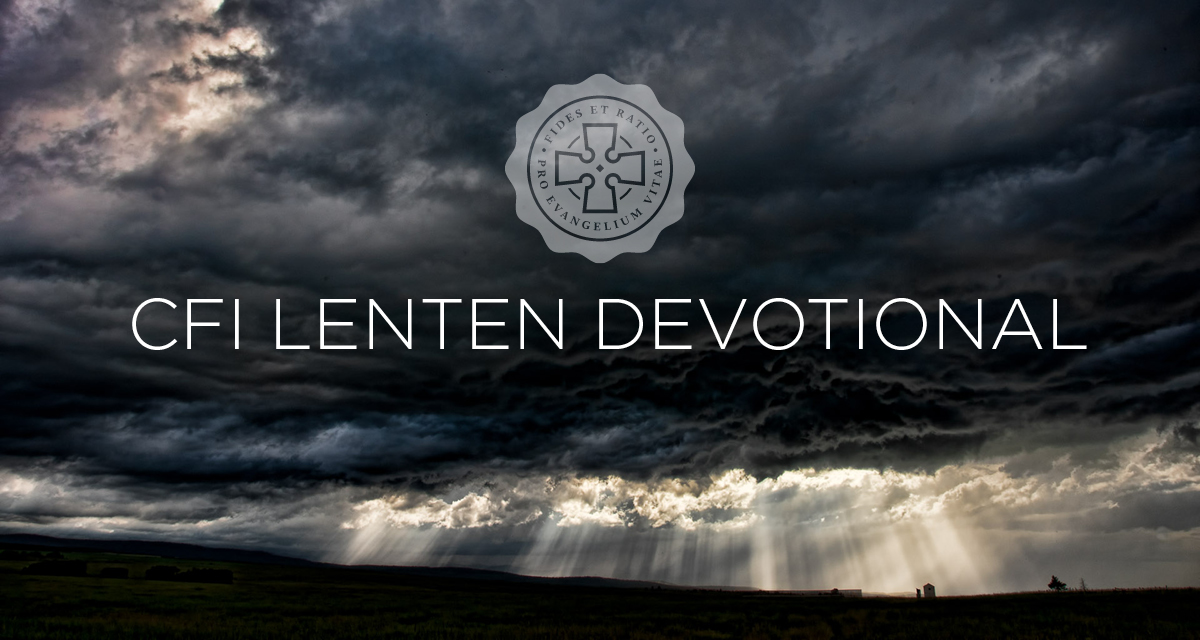Lenten Devotional: Body, Mind and Soul
During Lent, the Center for Faith and Inquiry (CFI) shares weekly meditations penned by members of the Gordon community. Join CFI this Lenten season in prayer, in contemplation and in anticipation. Sign up to receive these devotions in your inbox weekly >
Fifth Sunday of Lent: Ezekiel 37:1–14 and Romans 8:6–11
God cares about us as his creatures, body, mind and soul. In the midst crises we can forget that we are whole creatures and focus instead on a single aspect of our personhood. In a natural disaster or a medical emergency, we may focus on saving physical bodies, while the emotional and psychological damage is deferred for later care. When we are perplexed in mind or spirit, we may forget to eat properly or be unable to sleep, ignoring the care of our physical bodies. But God’s vision for our flourishing does not neglect our physical, mental or spiritual dimensions. Even in the book of Romans, when Paul speaks of the flesh in opposition to the Spirit, it is clear that “flesh” does not denote our physical bodies, but our sinful state separate from God’s righteousness. In fact, Paul is quite clear that if we are renewed by the Spirit of God, our frail human bodies, subject to weakness, suffering and death will ultimately be made immortal.
This promise of immortal bodies and souls enlivened by the Holy Spirit, was revealed dramatically to the prophet Ezekiel in the sixth century B.C. God’s Spirit led Ezekiel to a valley littered with human skeletons. This ominous sight, gruesome in our imaginations, would have brought to Ezekiel’s first audience the image of a great military defeat where one side was so thoroughly annihilated that none survived to bury their dead. In a sacrilege abhorred by ancient people, corpses were left to rot in the sun until only scattered bones remained. This image recalls not only the weakness of human bodies subject to death and decay, but the sobering reminder that even the most powerful army led by a human commander can be reduced to dust and bones. As we heard on Ash Wednesday, “Ashes to ashes, dust to dust.” We are all mortal.
But the Lord spoke to Ezekiel, asking him if the dry bones could live again. And the prophet, who already knew something of God’s power replied, “Lord, you alone know.” Then he watched as dry bones came together, muscles and tendons reknit, and flesh and skin gave them shape. These empty corpses were not alive though, until God breathed his Spirit into them—as he once had into Adam—and they were filled with life—a vast standing army, where once only scattered human bones had lain. Not an anonymous or hypothetical army, but one named “the people of Israel”—God’s people. God speaks through Ezekiel: “I will put my Spirit in you and you will live.” Paul reaffirms this very promise, “He who raised Christ from the dead will also give life to your mortal bodies because of his Spirit who lives in you.” It is God’s own Spirit that gives life to us, his creatures, bodies, minds and souls.
By Jennifer Hevelone-Harper, Loring-Phillips Endowed Professor in History
 The Bell
The Bell